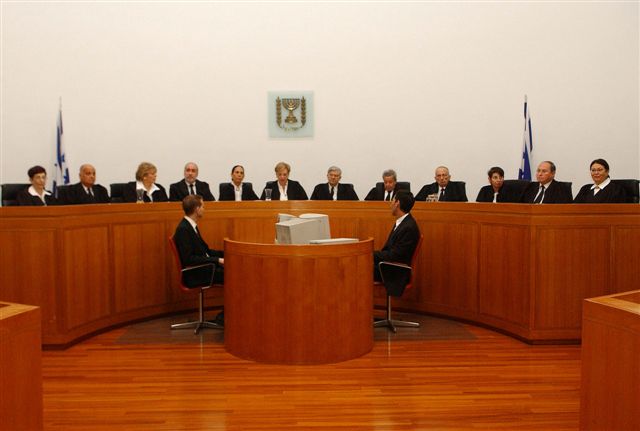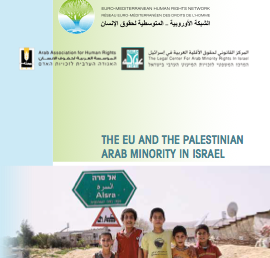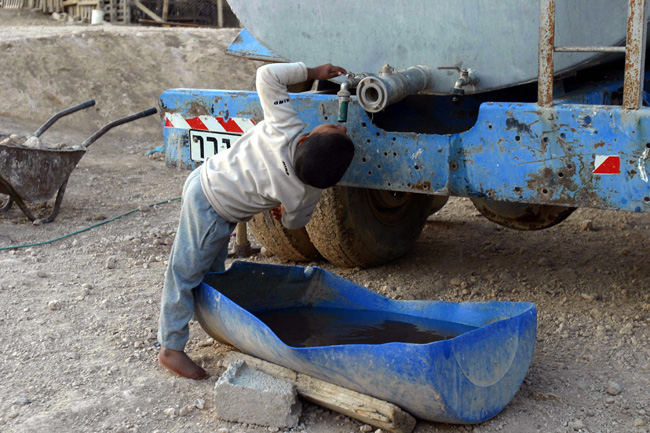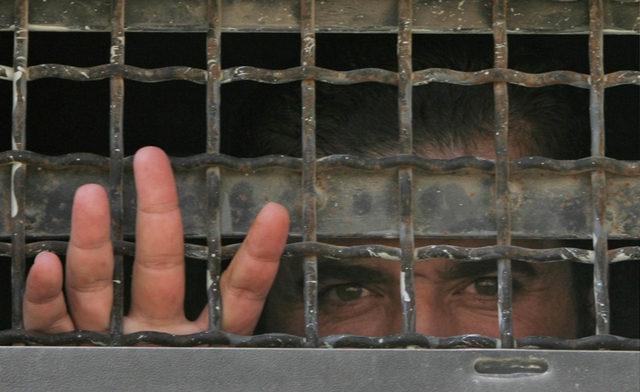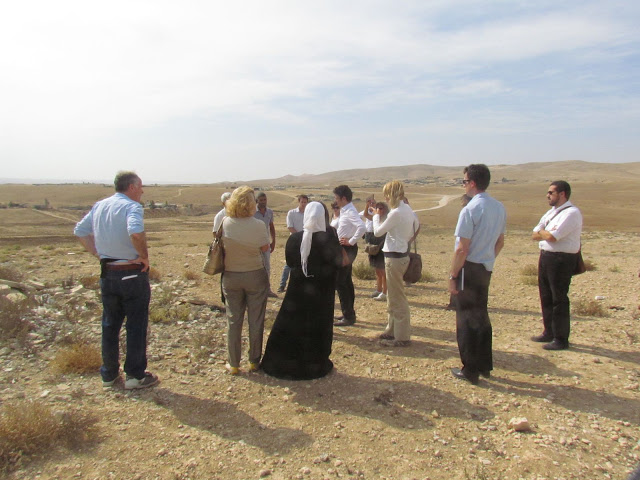Adalah Leads Foreign Diplomat Tour of Arab Bedouin Unrecognized Villages in the Naqab, as part of “Stop Prawer” Campaign
At Adalah’s invitation, a high-level tour of more than 10 deputy heads of mission and political counselors from European and Latin American embassies in Israel visited the Naqab (Negev) last week on 24 October 2012 in order to better understand the current situation of Arab Bedouin citizens of Israel and the potential devastating effects of the Prawer Plan. The Prawer Plan, approved by the Israeli government in September 2011, seeks to dispossess and displace about 70,000 Arab Bedouin from their homes and their lands. Dr. Thabet Abu Ras, the director of Adalah’s Naqab office, led the tour.
The tour began in the unrecognized village of Al-Araqib, which had been demolished the week before for the 43rd time. Sheikh Sayyah Abu Medeghem and Dr. Awad Abu Freh met with the group and explained the village’s history, and the means the state has used to try to uproot Al-Araqib’s residents from their land. The speakers also emphasized the role of the Jewish National Fund in Arab land confiscation by planting large forests on swaths of the villagers’ land.
The delegation also visited Hura, one of the government-planned towns in the Naqab, and heard a briefing from local residents on problems including poverty, unemployment, the low-level of education, and poor health care access, and the complications that arise from imposing an urban lifestyle on the Arab Bedouin.
In the unrecognized village of Alsira, where all 51 homes are threatened with demolition for being “unlicensed”, despite the village’s existence since before Israel’s establishment, the delegation met with a number of residents. Speakers included Nora al-Nasasreh, who told the group about her family’s suffering after their home was demolished in spite of a court order freezing all demolish. The Magistrate Court in Kiryat Gat later decided to cancel the demolition orders, following Adalah’s legal intervention; the state is currently appealing this decision. At Alsira, the delegation also saw the creative ways that the residents have devised to overcome the lack of necessary infrastructure such as electricity and water, such as their extensive use of solar panels.
The tour continued to Abu Tlul, one of the ten recently-recognized Arab Bedouin villages that is part of the Abu Basma Regional Council (ABRC). The visitors met a leader of Abu Tlul, ‘Atiyya Al’asm, and learned that despite the village’s recognition, the village still lacks water and electricity connections, and essential paved roads. The delegation heard about the Interior Ministry’s decision to continue to delay local elections for the ABRC, despite a Supreme Court order, so that government-appointed officials remain in control of the local government.
The tour concluded in the unrecognized village of Khashem Zane, one of the six unrecognized villages threatened with demolition to make way for Road 6 (the Trans-Israel Highway). The village has a population of 2,300 and strong possibilities for development, if it is recognized.
Following the tour, Dr. Thabet Abu Ras explained: “We wanted the tour today to familiarize the participants with the three different kinds of existing towns in the Naqab today: unrecognized villages, the 10 recently-recognized villages that are part of the Abu Basma Regional Council, and the seven urban townships. All of these places will experience major problems under the Prawer Plan when it is implemented.”













